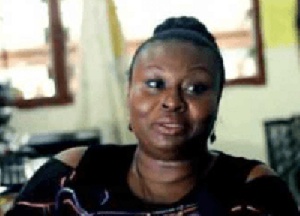 Acting Director of International Federation of Women Lawyers, Susan Aryeetey
Acting Director of International Federation of Women Lawyers, Susan Aryeetey
Mrs Susan Aryeetey, Acting Director of International Federation of Women Lawyers (FIDA)-Ghana, has called on the media to be drivers of the advocacy campaign for the passage of the Affirmative Action Law (AAL) before the end of the year.
She said the media could serve as allies for transferring knowledge which could help intensify the campaign for the passage of the AAL.
She said the passage of the affirmative law is important to bridge the representation gap of women in governance position and the public space.
Mrs Aryeetey said this at a day’s media forum on the Affirmative Action Bill (AAB) held in Accra.
She said if women are not represented in similar numbers in Parliament and other governance positions, it amounts to a representation gap, which limits the capacity of women to have their voices heard and to have their issues addressed.
“This requires enactment of an Affirmative Action Law to correct the representation gap, which would mark a giant step in the journey towards increasing women’s participation in public life,” Mrs Aryeetey said.
She said while some countries have set major milestones in the effort to place more women in positions of influence, Ghana is trailing at least 12 African countries and done very little at ensuring the passage of the affirmative action bill.
Mrs Aryeetey said at the rankings for women in national parliament as at October 1, 2018, on the inter parliamentary union website, Ghana was ranked 143 out of 192 countries, but in 2016 Ghana was ranked 149 demonstrating the slow progress the nation has attained.
She said Ghana has in many ways led the way with pioneering legislations, however, laws that often impact the lives of women and improves gender equality is not properly administered.
“It is no wonder that affirmative action evokes diverse sentiments from various sections of the society. Gender parity laws are useful strategies to correct systemic gender imbalance not only decision making structures but in all spheres of life.”
Mrs Aryeetey said equal representation of women in decision making no matter how it is addressed is a right issue and since government has committed to uphold the rights of women it must ensure increased participation of women in public life.
“Ghana wins if its legislature is able to work with the President to pass the affirmative action law by the end of this year.”
Ernestina Ofoe, Programme Coordinator FES, said the bill had not been tabled before parliament and conscious efforts must be made to get women into office.
“FES wants to be part of the process to ensure that the bill is passed. We want a document that would compel those in authority to ensure that at least 40 percent of women would be in governance as the affirmative action seeks to do in employment, private sector and politics amongst others”.
She said there are less than 14 percent of women in Parliament and there is the need for the law to be passed which was not just about women but correcting the social wrong in the system.
Mrs Joana Opare, Former Chair, AAB Draft Committee, said the objective of the law was to ensure the achievement of gender equality in political, social economic and educational spheres in society.
She said the bill also seeks to promote a progressive increase in active participation of women in public life from a minimum of 30 percent to a parity of 50 percent by 2030 in line with the SDG’s and has a memorandum that outlines in details its purpose and design and provides a detailed background and jurisdiction.
Mrs Opare said the bill also establishes a multi-sectorial gender equality oversight committee of not more than 9 person and addresses critical areas where there is the need for gender equality including governance institution, selected sectors of government, political parties, traditional authorities and trade unions and private employment.
She said some of the challenges the laws have faced include lack of political will, funding and the lack of an oversight entity among others.
Mrs Opare said equal participation of women in decision-making was not only a demand for simple justice or democracy but could also be seen as a necessary condition for women’s interest to be taken into account.
“Without the active participation of women and the incorporation of women’s perspective at all levels of decision making, the goal of equality, development and peace cannot be achieved,” she said.